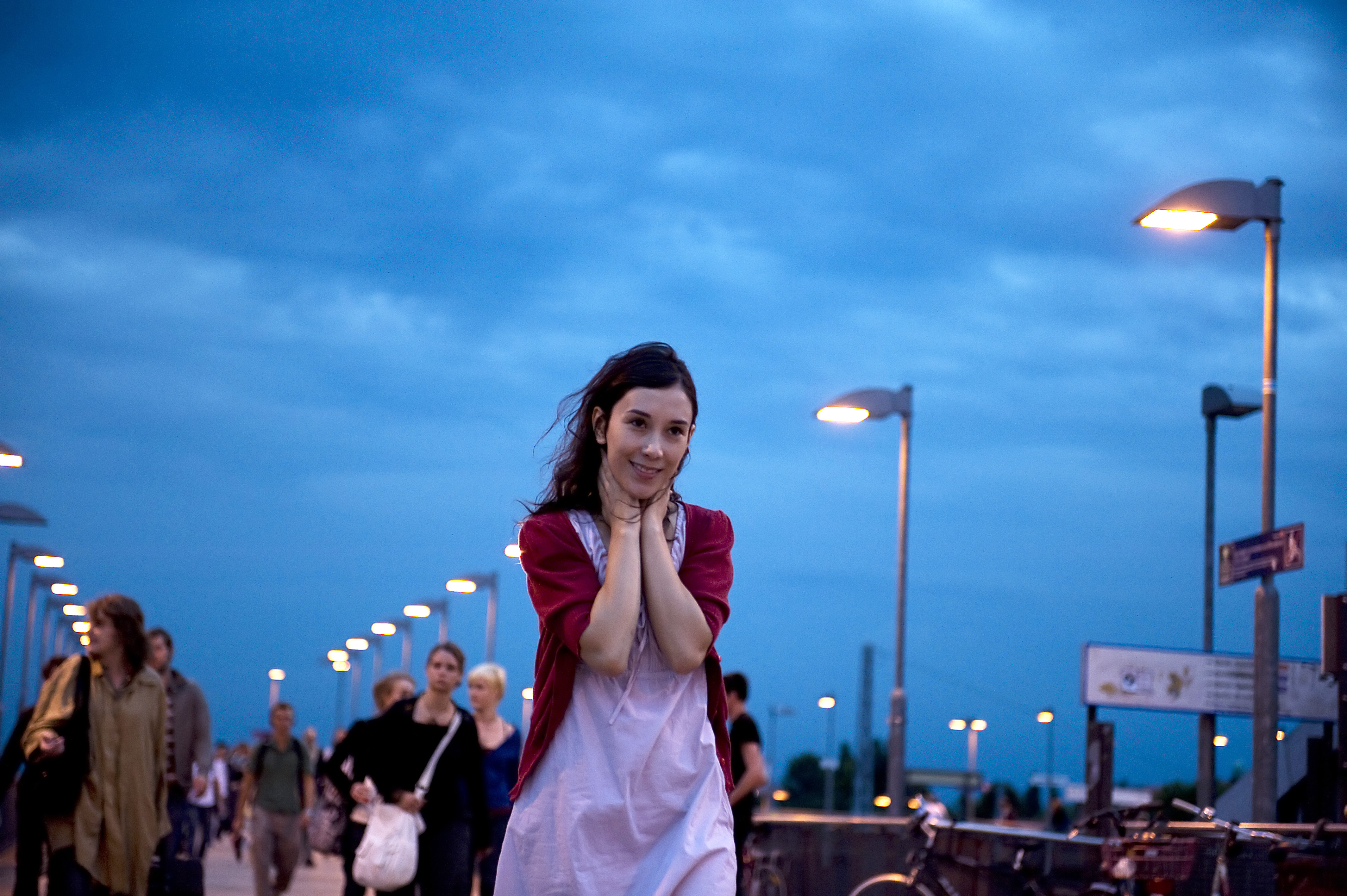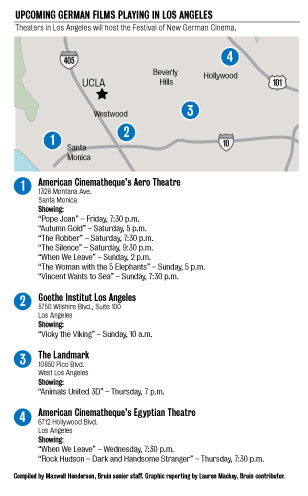
Sibel Kekilli appears in Feo Aladag’s film “When We Leave (Die Fremde),” Germany’s entry for the Oscar nomination for Best Foreign Language Film. (Photo courtesy of Manfred Horen)
It’s easy to get a taste of Mexican culture by simply walking down Olvera Street, and Italian culture is equally accessible, with UCLA’s very own Café 1919 serving everything from gelato to pizzas and paninis. But it’s a little more difficult to get a sampling of German culture, even in Los Angeles, one of the most ethnically diverse cities in the country.
With its fourth annual film festival, German Currents: New Films from Germany aims to make this culture more accessible to the L.A. community. The showcase, which is headed by the Goethe-Institut Los Angeles and its partners, the American Cinematheque, German Films and Lufthansa, will run Wednesday through Sunday.
The partners chose the films, all of which have not been shown in Los Angeles, and they will be screened at four venues ““ the Egyptian Theatre, the Aero Theatre, the Landmark and the Goethe-Institut Los Angeles.
“The mission is to present a variety of extraordinary and brilliant films from Germany. We only chose 11 films, and there are much more, but we thought we wanted to present films that have won several awards in Germany and that show different kinds and formats,” said Annette Rupp, the director of the Goethe-Institut Los Angeles and the director of the festival.
These films were chosen from all over Germany, exhibiting many different formats including a children’s movie (“Vicky the Viking”), a variety of features and Germany’s first 3-D animation film (“Animals United 3-D”). According to Rupp, most of the filmmakers will be present for a discussion regarding their films.
Jonathan Jones, a doctoral student in German literature who also specializes in post-war German cinema, said that the festival is an important way for students to be exposed to German culture and German filmmaking. He has attended the festival in the past and will attend this year as well.
“I think it’s interesting and important for students who are interested in other cultures, who are particularly interested in the German language … and in learning about Germany because we don’t have that many ways to get in touch with German culture,” Jones said.
“For German (culture), this is one of the few avenues that we have to be able to do that.”
“When We Leave,” Germany’s entry for the Oscar nomination for Best Foreign Language Film, will be screened on the opening night of the festival at 7:30 p.m. at the Egyptian Theatre.
Feo Aladag, the director, writer and producer of “When We Leave,” will be on hand for a question-and-answer session about her film, which deals with honor crimes, or crimes committed by family members who feel that another member has brought dishonor to the group.
After directing a series of social spots for Amnesty International’s campaign about violence against women, Aladag felt the need to continue researching the subject, which eventually led to the making of her film.
“I wanted to do more than just a special interest thing, I kept on doing more and more research. I was wondering, “˜Why didn’t it let go of me?’ It just had this grip on me,” Aladag said.
“I was trying to understand the complex mechanisms that are unleashed within the family structure in the case of honor crimes, which can escalate to murder.”
Aladag worked on the film for nearly seven years, doing research, writing the script and training the actors.
In return, the film has received numerous awards, including the Best Film in Bronze at the German Film Awards and the Best Narrative Feature Award at the Tribeca Film Festival.
Aladag’s film will be one of many also screened at the Berlin & Beyond Film Festival in San Francisco, which is partnering with German Currents for the first time.
According to Rupp, this is an opportunity to bring more films to California to promote a big West Coast film event.
According to Rupp, German Currents also aims to cater to college students.
“We have a long-term partnership (with UCLA),” Rupp said. “We would love to have (students) in the crowd and the room to discuss filmmaking between Germany and the U.S.”
